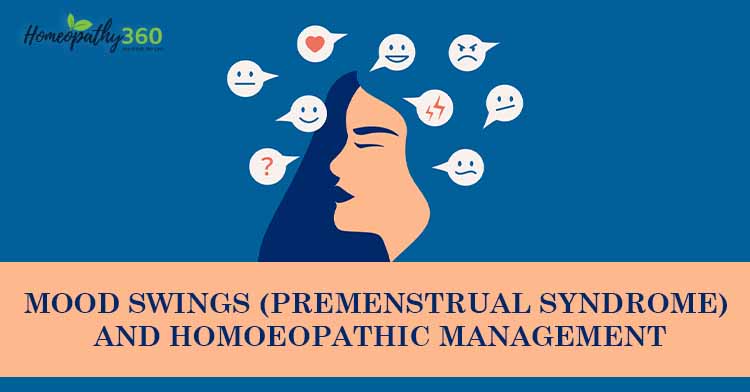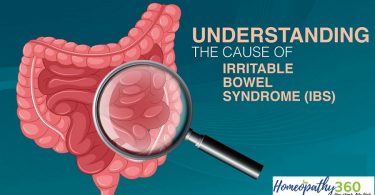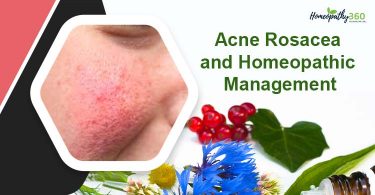
ABSTRACT
The premenstrual syndrome (PMS) is a major clinical entity afflicting a large segment of the female population. Premenstrual syndrome (PMS) affects millions of women during their reproductive years. The disorder is characterized by the cyclic recurrence of symptoms during the luteal phase of the menstrual cycle. Symptoms typically begin between the ages of 25 and 35 years. Women who have severe affective symptoms may also meet criteria for premenstrual dysphoric disorder (PMDD). In both PMS and PMDD, symptoms diminish rapidly with the onset of menses. Up to 85 percent of menstruating women report having one or more premenstrual symptoms, and 2 to 10 percent report disabling, incapacitating symptoms. More than 200 symptoms have been associated with PMS, but irritability, tension, and dysphoria are the most prominent and consistently described. Homeopathy offers an effective treatment for PMS with no side effects. Homeopathic remedies for premenstrual syndrome, which are sourced from natural substances, ensure that women get relief from the symptoms of PMS and that women do not have to endure a premenstrual phase that upsets their whole mental and physical makeup.
KEYWORDS
Premenstrual syndrome, Premenstrual dysphoric disorder, Homoeopathy.
Definition
Premenstrual syndrome is a group of physical and emotional symptoms that start during the second half of the menstrual cycle (14 days or more after the first day of your last menstrual period) the time after ovulation and before menstruation. Go away days after the menstrual period starts -Symptoms vary between females and even from cycle to cycle.
Causes
Exactly what causes premenstrual syndrome is unknown, but several factors may contribute to the condition:
- Cyclic changes in hormones. Signs and symptoms of premenstrual syndrome change with hormonal fluctuations and disappear with pregnancy and menopause.
- Chemical changes in the brain. Fluctuations of serotonin, a brain chemical (neurotransmitter) that is thought to play a crucial role in mood states, could trigger PMS symptoms. Insufficient amounts of serotonin may contribute to premenstrual depression, as well as to fatigue, food cravings and sleep problems.
- Depression. Some females with severe premenstrual syndrome have undiagnosed depression, though depression alone does not cause all of the symptoms.
Types of PMS (Premenstrual syndrome)
- Mild: does not interfere with personal/social and professional life.
- Moderate: interferes with personal/social and professional life but still able to function and interact.
- Severe: unable to interact personally/ socially or professionally- withdraws from social and professional activities.
- PMDD (Premenstrual Dysphoric disorder): severe PMS.
Risk factors
- High caffeine intake.
- Alcohol abuse.
- Stress.
- Anxiety.
- History of depression.
- Increasing age ( worse in late 30s).
- Overweight.
- Family history.
- Dietary factors(low levels of certain vitamins and minerals).
Symptoms
| Emotional symptoms include | Physical symptoms include |
| Depression | Food cravings |
| Angry outbursts | Thirst and appetite changes |
| Irritability | Breast tenderness |
| Crying spells | Bloating and weight gain |
| Anxiety | Headache |
| Confusion | Swelling of the hands or feet |
| Social withdrawal | Aches and pains |
| Poor concentration | Fatigue |
| Insomnia | Skin problems |
| Increased nap taking | Gastrointestinal symptoms |
| Changes in sexual desire | Abdominal pain |
Homoeopathic management
- SEPIA: PMS with extreme irritability.
Indications:
- Angry, sensitive, irritable, easily offended and miserable.
- Irritability, alternating with indifference or sulks.
- Falling out or heavy bearing down feeling in hypogastrium better by holding it or crossing legs.
- IGNATIA: PMS with depression and mood swings.
Indications:
- Fixed ideas may be added and desire to be alone.
- Effects of grief and worry. Rapid change of mental and physical condition, opposite to each other.
- Desire to be alone.
- PULSATILLA: PMS with increased sensitivity.
Indications:
- Disposition and temperament: “A timid, weeping disposition with tendency to inward grief and silent peevishness or at all events a mild and yielding disposition.
- Acts best where there is a disposition to chilliness and thirstlessness.
- It is suitable for females when their menses come on some days after the proper time.
- LACHESIS: PMS with symptoms of body pain.
Indications:
- Nervous, excitable. Great loquacity, rambling, frequently jumping from one subject to another, then sadness or repeats the same thing.
- Breasts inflamed, bluish. Nipples swollen, erect, painful to touch.
- Uterine pains are better as soon as menses appear.
- CONIUM: PMS with breast tenderness.
Indications:
- Depressed, timid, averse to society, yet fears being alone.
- Excitement causes mental depression. Fears when alone, but dread of strangers or company during menses.
- The dysmenorrhea pains were relieved by Sepia and other remedies, but prolapse increased with bearing-down as though the womb would be forced from vulva, worse standing and walking before and during menses.
General management
Self-help techniques:
- Dietary alteration: less fat, sugar, caffeine and alcohol.
- Frequent starchy meals: more fiber, fruit, and vegetables.
- Exercise: moderate regular aerobic exercise promoting cardiovascular work.
- Stress reduction: relaxation techniques, yoga, meditation, breathing techniques.
- Cognitive behavioral therapy: long- term benefit.
Conclusion
As menstruating women report having one or more premenstrual symptoms and 2 to 10 percent report disabling, incapacitating symptoms. More than 200 symptoms have been associated with PMS. Homeopathic remedies for premenstrual syndrome have proved its effectiveness to get rid from these symptoms completely.
Reference
- Dickerson LM, Mazyck PJ, Hunter MH. Premenstrual syndrome. American family physician. 2003 Apr 15;67(8):1743-52.
- Reid RL, Yen SS. Premenstrual syndrome. American Journal of Obstetrics and Gynecology. 1981 Jan 1;139(1):85-104.
- https://www.mayoclinic.org/diseases-conditions/premenstrual-syndrome/symptoms-causes/syc-20376780#
- https://www.drhomeo.com/menses/homeopathic-remedies-for-pms-or-premenstrual-syndrome/
AUTHOR
DR JAVERIABANU. J. JAMBU
P.G SCHOLAR
DEPARTMENT OF PAEDIATRICS
FATHER MULLER HOMOEOPATHIC MEDICAL COLLEGE AND HOSPITAL DERELAKATTE MANGALORE
UNDER THE GUIDANCE OF:-
PROF. DR JYOSHNA SHIVPRASAD HOD, PAEDIATRICS (FATHER MULLER HOMOEOPATHIC MEDICAL COLLEGE AND HOSPITAL DERELAKATTE MANGALORE)





